

|
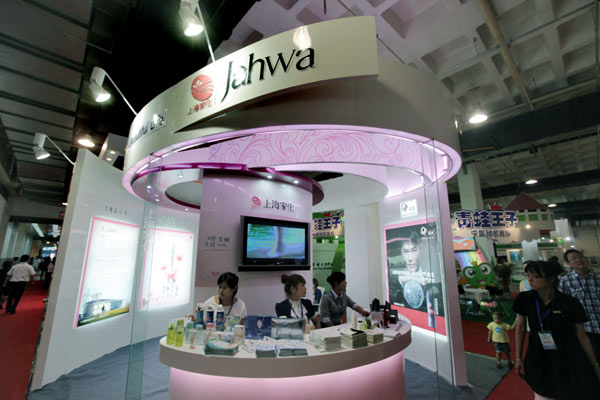 Data from the Boston Consulting Group showed that China's cosmetic and skincare market is the world's third-largest, after Japan and the United States, and was worth more than 96 billion yuan last year. [Photo / Provided to China Daily]
|
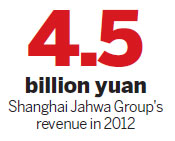
Cosmetics company aims to expand product lineup to tap global market
Cosmetics company Shanghai Jahwa Group is planning to buy foreign brands to "beautify its brand portfolio", the company's chairman, Ge Wenyao, said on Tuesday.
Ge said the company has abundant cash flow and is now selecting potential foreign targets, which would be much cheaper than domestic ones and can help the Shanghai-based group better tap into the international market. He declined to provide more details about the acquisition plans.
The group has 10 domestic brands, including three launched on Tuesday. The three new brands are Giving, a skincare line for babies, Soft Sense, which will be sold mainly through regional distributors in lower-tier cities, and Tea Beauty, which targets the e-commerce market.
The three new brands will - together with the company's best-selling products Liushen and Herborist - build a "Great Wall of brands" to compete against foreign giants, the company said.
Last year, Jahwa Group posted revenue of 4.5 billion yuan ($729.06 million), up 26 percent year-on-year.
Ge said that he has great confidence for equal, if not better, figures this year, which he thinks will continue to be driven by household brands Liushen and Maxam, thanks to the high temperatures this summer.
Data from the Boston Consulting Group showed that China's cosmetic and skincare market is the world's third-largest, after Japan and the United States, and was worth more than 96 billion yuan last year.
Waldemar Yap, a partner and managing director of BCG, believes the market will keep growing at a faster speed than the country's GDP.
"The Chinese middle class will increase from the current 46 million to 130 million in the next eight years, and they will be the major growth engine for the market," Yap said.
While foreign cosmetics giant continue to dominate the market, with an average market share of over 60 percent in all sectors, Yap noted that "the space for domestic companies is sufficient".
According to the BCG figures, China's largest domestic company has only 2 percent of the market share, while in countries like Japan and Korea, the largest local company accounts for as much as one-quarter of the market.
But domestic players are quickly catching up, with an annual growth rate of more than 20 percent in the last five years, while foreign companies have seen growth rates of about 10 percent.
To boost sales, foreign firms are increasingly coming up with products with local characteristics.
In March, Procter & Gamble Co launched its first Asian-themed skincare line, Oriental Therapy, while Estee Lauder Companies Inc is test-running a specific beauty brand for Asia, Osiao, which is made with Chinese plants including ginseng.
This was the first time that Ge, who has been working with Jahwa for 28 years and turned the group into a leading consumer products company, made a public appearance after a dispute with the group's controlling shareholder, Ping An Insurance (Group) Co of China Ltd.
In May, Ge complained on his Sina Weibo account that Jahwa was "suffering from political disturbances" and that Ping An was "being short-sighted" and selling the company's assets after it gained control of the company.
The remarks almost led to Ge's removal from his position, but the high-profile row was later settled peacefully through the mediation of the Shanghai municipal government.
It is believed the conflict was partly related to a potential investment project, which Ge hoped could expand the company further into a fashion group.
Ge is said to have asked Ping An to invest in Chinese high-end watch brand Seagull, a suggestion which was not taken seriously.
 Models at Ford pavilion at Chengdu Motor Show
Models at Ford pavilion at Chengdu Motor Show
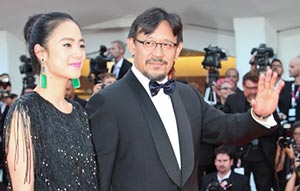 Brilliant future expected for Chinese cinema: interview
Brilliant future expected for Chinese cinema: interview
 Chang'an launches Eado XT at Chengdu Motor Show
Chang'an launches Eado XT at Chengdu Motor Show
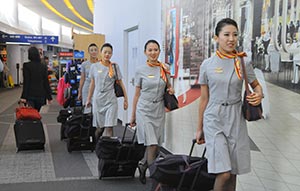 Hainan Airlines makes maiden flight to Chicago
Hainan Airlines makes maiden flight to Chicago
 Highlights of 2013 Chengdu Motor Show
Highlights of 2013 Chengdu Motor Show
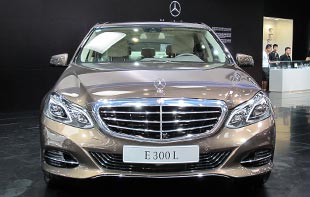 New Mercedes E-Class China debut at Chengdu Motor Show
New Mercedes E-Class China debut at Chengdu Motor Show
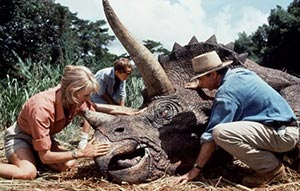 'Jurassic Park 3D' remains atop Chinese box office
'Jurassic Park 3D' remains atop Chinese box office
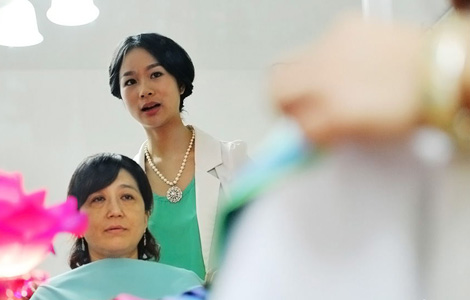 Beauty reveals secrets of fashion consultant
Beauty reveals secrets of fashion consultant